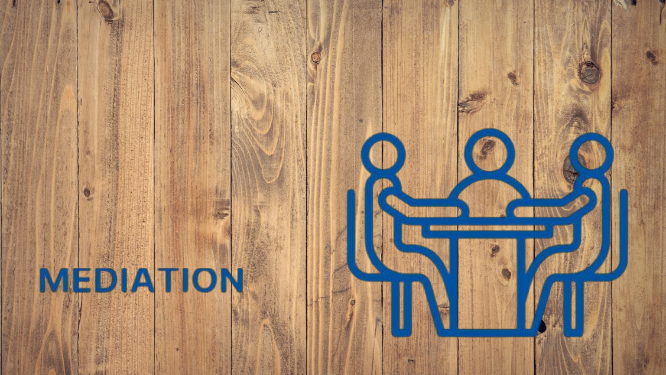Tips to Prepare yourself for Mediation.
Preparing yourself prior to a mediation is critical to the mediation process. It signals to your mediator that you are prepared and know what you’re doing. For your opposition it demonstrates that you have convincing evidence, a compelling narrative, and the skills needed to win, should the case go to trial. Here are some tips to prepare you for the mediation.
Remember that mediation is not about being right
Even the most persuasive advocates are unlikely to convince the opposing side that they are right. Each side has their own agenda and their own version of reality. There can be a lot of bad blood, mistrust, poor communication, and ignorance, and that will get in the way. Mediation isn’t about listening to the other side and agreeing on the facts or who is right. That is just never going to happen. Your goal is to meet in the middle somewhere and compromise, since each side typically thinks they are completely in the right.
Ask your Lawyer to help you understand
Lawyers will always endeavour to help their client understand the situation, by not repeating tired old clichés. They can explain the information that is being exchanged in the mediation, and that information can form the base of a favorable settlement for you. Resist the temptation to speak in clichés such as “the other side is negotiating in bad faith” and you are “standing on principle.” These kinds of statements are just not helpful to the process.
Always use a calm tone
“Tone is important because there is a big difference between mediation advocacy and trial advocacy. You can be persuasive in mediation without crossing over into being insulting or combative.” Don’t accuse the other side of dishonesty or falsifying information, that is not conducive to reaching a settlement. You are trying to find a solution, not win a battle.
Maintain a theme
Think about your mediation process as a story you are telling. Humanize the party in disagreement with you and explain what has happened to bring you to this situation. All the best stories have a theme, what will your story’s theme be? Try and make it one that is universal and easy for the other party to relate to. Some good examples of universally understood themes are “they broke the rules,” “a broken promise,” and “not accepting responsibility for their actions.”
Brain storm solutions on how you think the matter can be resolved.
The most important thing to include is your plan(s) for how the case might come to a resolution. Is there something you absolutely need to have or can forego? Is your solution something as simple as a payment or possibly an agreement for business in the future? These kinds of proposals are a big part of the reason why mediation results in settlements that are more favorable than one decided in court.
Examine your risk factors
Think about what the possible risks are. Examine and weigh these risks and then decide if you should settle on something in mediation or move on to a trial. What evidence do you have to support your claim? Is there an eye-witness that isn’t available for mediation but may become available by the time of a trial? How strong a witness are they? What are the risks for the other side? “Think outside the box.”
Conclusion
Mediation can be a very effective and beneficial way to resolve a dispute because of its confidential nature and because a decision is not imposed on you. Always try and make the most of a mediation situation; preparing yourself for the mediation is the first step in that process. Your preparation for the mediation, if done with professionally competent minds, can be a big part of the reason you receive a favorable resolution. Follow these tips prior to seeking a mediation.
Written by Mr. Joseph Ekemu; Lawyer and Mediator
Published:04/02/2019

